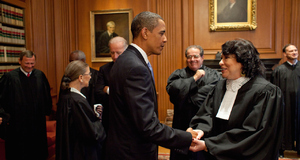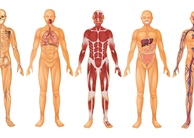Student VoicesCitizens United vs. Federal Election Commission: Taking America from a Proud Democracy to a Privately-Funded Corporatocracy
By
2010, Vol. 2 No. 03 | pg. 1/1
KEYWORDS:
Democracy is based on the core principle that the power to govern should be in the hands of the people. In the United States, the people exercise that power by casting their vote for the candidate they see as most fit to lead. This right is now being threatened: the 5-4 Supreme Court decision in Citizens United vs. Federal Election Commission undid a century-long precedent that protected that fundamental right of the people by lifting limits on corporate political spending. Now that corporate spending is limitless, the power to govern lies in the hands of corporate giants. The court’s decision was a foolish misstep which threatens the fabric of our nation. As MSNBC commentator Keith Olbermann predicted on his program, this ruling will bring a future in which the government is no longer of the people, for the people, and by the people, but rather “of the people, by the corporations, [and] for the corporations.” 
Graphic: DonkeyHotey/Flickr CC-2 The court has determined that, because they are associations of citizens, corporations have the same constitutional protection guaranteed to people in the United States by the Bill of Rights. To limit the amount of money a given corporation can spend on a candidate for office, the court reasons, is to violate a corporation’s first amendment right to free speech. The court believes that to regulate the “right” to free speech of corporations would allow Congress to restrict the free speech of media platforms such as newspapers and television programs. This interpretation of the law is a gross misjudgment which, by virtue of corporate bank accounts, gives corporations more influence in federal elections than individual voters. While it is true that single citizens too have the right to donate to political campaigns, an individual’s capacity to contribute can hardly match the budgets of multi-billion dollar corporations. Elections should not be financial competitions, but competitions of policy, strategy, and honesty. The court’s decision allows corporations to determine which candidate will receive the most exposure to the nation’s citizens. Such a policy will allow great candidates willing to fight for the people to go unnoticed while great candidates willing to fight for corporations will be thrust into the spotlight. The Christian Science Monitor argues that many voters vote based on false beliefs garnered from misleading campaign ads, continuing, “the media blitz that saturates voters’ minds to the exclusion of all else is the goal of any campaign manager with enough money to pull it off. Under these circumstances, voters trying to inform themselves about the issues of the day are not shopping in a marketplace of ideas so much as looking for a needle in a haystack.” This illustrates the fundamental danger of this court’s decision: a voter’s choices will now be exclusively offered as corporate products to be purchased with a vote. The function of a public servant is to serve the public; with heavy corporate influence it won’t be long before this democratic tradition is bastardized beyond recognition. Honest candidates looking to fulfill their duty to serve the public will be forced out of the political arena by candidates swimming in corporate monies. Before long, these honest politicians, a phrase oxymoronic even by today’s standards, will become extinct and the American public will be left only with the candidates chosen for them by corporations. Before long, these honest politicians, a phrase oxymoronic even by today’s standards, will become extinct and the American public will be left only with the candidates chosen for them by corporations. Candidates willing to forfeit their duty to the people for corporate financial support are power-hungry politicians unfit to lead. And yet politicians of this deceitful breed will likely be the only choices offered to the American public. Proponents of this decision will argue that it does not alter a citizen’s right to elect the candidate of their choice. However, this assertion ignores the fact that the candidates citizens have to choose from will be hand-picked by corporate donors. Air time will be clogged with corporately funded political ads lauding the candidates who would best serve the corporation’s special interests and berating or ignoring the candidates who would best serve the people. With constant exposure to corporate influence and almost no exposure to untainted candidates handicapped by minimal funding, how can people be expected to know who, if anyone, has their interests in mind? Furthermore, according to Mitch Lipka of the Consumer Alley as quoted on WalletPop.com, voters may fall victim to misleading advertising and marketing tactics: “People can be manipulated by slick marketing campaigns. There is no question the amount of money that will be spent on some of these campaigns will be staggering and, of course, slick. People will be influenced and, in some cases, misled.” This type of misleading advertising, which is often employed in the political arena, further demonstrates how injurious the court’s decision can and will be to our democracy. In the Two Treatises of Government, one of the documents which inspired Thomas Jefferson to pen the Declaration of Independence, John Locke prescribes that “the end of government is the good of mankind” and that if the government violates this maxim, the public is morally obligated to overthrow it. If the public servants currently holding office truly believe in their duty to the public, they will do whatever is possible within their power to see that this ruling is nullified via pertinent legislation. If they will not, then it is the obligation and right of the public to rebel, either by force or by passive resistance. However, if all in America fail to act, then this once proud democracy will dissolve into a privately-funded corporatocracy. Suggested Reading from Inquiries Journal
Inquiries Journal provides undergraduate and graduate students around the world a platform for the wide dissemination of academic work over a range of core disciplines. Representing the work of students from hundreds of institutions around the globe, Inquiries Journal's large database of academic articles is completely free. Learn more | Blog | Submit Latest in Opinion |















